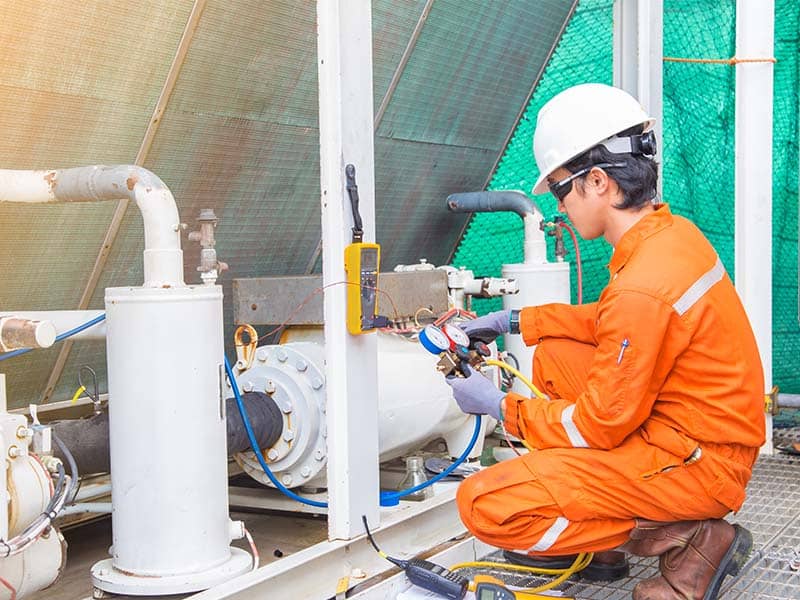
A building automation system can transform a building into a smart facility that uses energy more efficiently to maintain ideal indoor conditions. This has beneficial effects for indoor air quality, ongoing repair costs, the environment, and more.
What Is a Building Automation System?
A building automation system, or BAS, is designed and implemented for a single purpose: to increase the efficiency of your facility. This means not only controlling energy use but also making your space more comfortable for the least amount of energy. Lighting, HVAC, and other systems, when operating under an automated control system, will only run during preset times and under preset conditions.
A building automation system essentially becomes the brain behind your mechanical and electronic systems. By establishing centralized digital control through a communications network powered by hardware and software, a BAS allows for precision and control that was never possible before. A BAS is even naturally better for the environment. If your systems can produce the same conditions in your facility without using additional energy, your carbon footprint can be reduced substantially.
A building automation system can be used to optimize your systems for energy use, indoor air conditions, or both.
Energy Efficiency
A BAS’s main purpose is to use your systems exactly as much as they are needed to create your ideal conditions in your facility. That may seem obvious, but consider the facilities you have been in that were too hot, too cold, or had irregular temperatures throughout the space.
In the old days, each element of an HVAC system was controlled manually. Eventually, we moved to the thermostat to regulate temperature, and now facility managers have the ability to independently control and monitor every element of the system.
This includes:
- Air handling units (AHUs)
- Chillers
- Boilers
- Rooftop units (RTUs)
- Fan coil units (FCUs)
- Heat pump units (HPUs)
- Variable air volume boxes (VAVs)
A holistic BAS collects data from throughout your system and makes automatic adjustments that ensure the most efficient use of energy possible.
Reduced Wear and Tear
A benefit to HVAC control systems that isn’t often discussed is how an efficient system relates to long-term repair costs. Building automation systems can actually save you money by reducing ongoing maintenance costs.
This happens in two ways:
Less Demand on Your Systems: Your HVAC system shouldn’t work any harder than it has to. If your system is designed properly from the beginning, a BAS will allow it to work as efficiently as possible to maintain conditions in your facility. Essentially, your system can work smarter, not harder. The result is that the natural wear and tear that all mechanical systems face will be slowed down.
More Informed Maintenance: It’s well understood by now that preventative maintenance is the key to ensuring your system lasts as long as possible and stays energy efficient throughout its lifecycle. Building automation systems are powered by data from every piece of equipment and every area of your facility. That data is used not only to monitor your systems and automatically make adjustments but can be leveraged to get a more complete picture of the state of your system. The more details an HVAC technician has about your system, the better chance they have of making small adjustments or tune-ups rather than expensive repairs over time.
In the end, this is a beneficial circle where it is easier to keep your systems in top working order. This makes them more energy efficient—meaning the workload is less demanding and repairs become rarer.
Building automation systems can simultaneously save you money on your utility bills while making your facility more comfortable.
Maintaining a Comfortable Space
Beyond all of the benefits for energy costs, repair costs, and even the environment, the efficiency that HVAC automation controls produce allows your systems to perform their functions better. When your staff feels consistently comfortable in the workplace, there are even long-term benefits to productivity.
The benefits of a building automation system are clear. To learn more about HVAC control basics and how they can be implemented as a part of a new or existing system in your facility, REACT Industries can help. Contact us today; we’d love to break down how it all works in more detail.